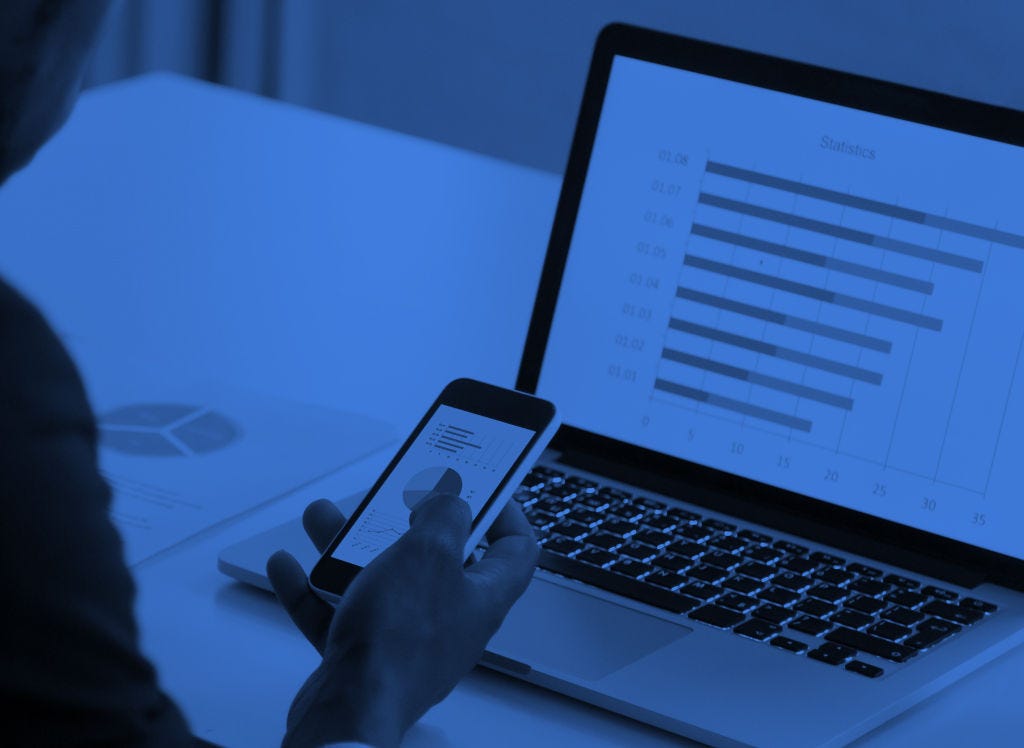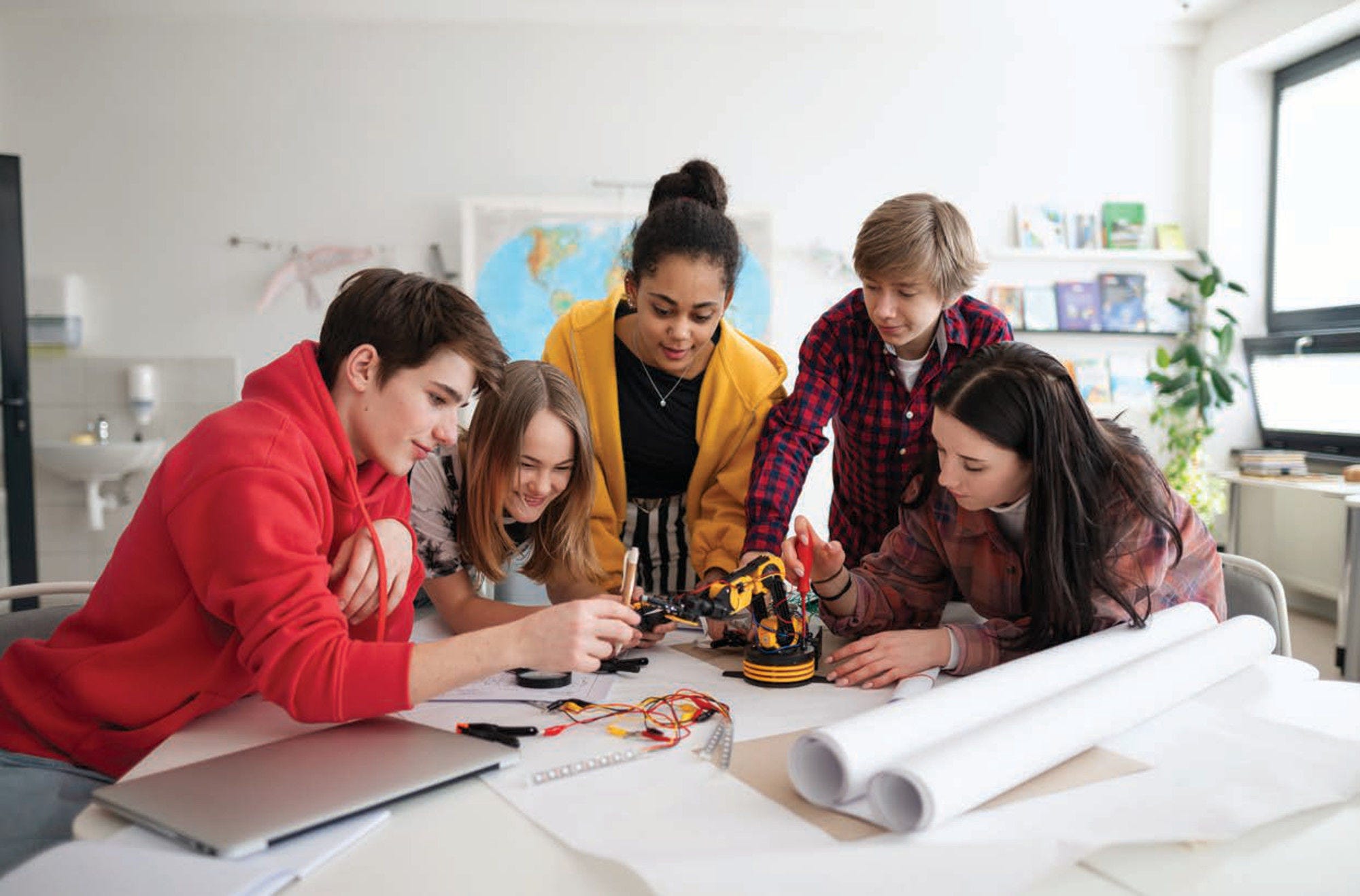PISA 2022 found that systems where more students spend a moderate amount of time, around 24 to 27 hours per week in regular school lessons (in all subjects combined), tended to score higher in mathematics. Education systems where more students spend below 20 hour or over 39 hours per week in regular lessons tended to score lower in mathematics. Education systems where more students spend up to two hours per day doing homework tended to score higher in mathematics, on average. By contrast, those systems where more students spend three hours or more on homework tended to score lower in mathematics.
Learning time and disciplinary climate
Education systems make various choices concerning the overall amount of time devoted to instruction. Intended instruction time differs from student learning time. Learning also happens outside of formal classroom settings. Disciplinary climate is an important element for the effectiveness of teaching and learning time.
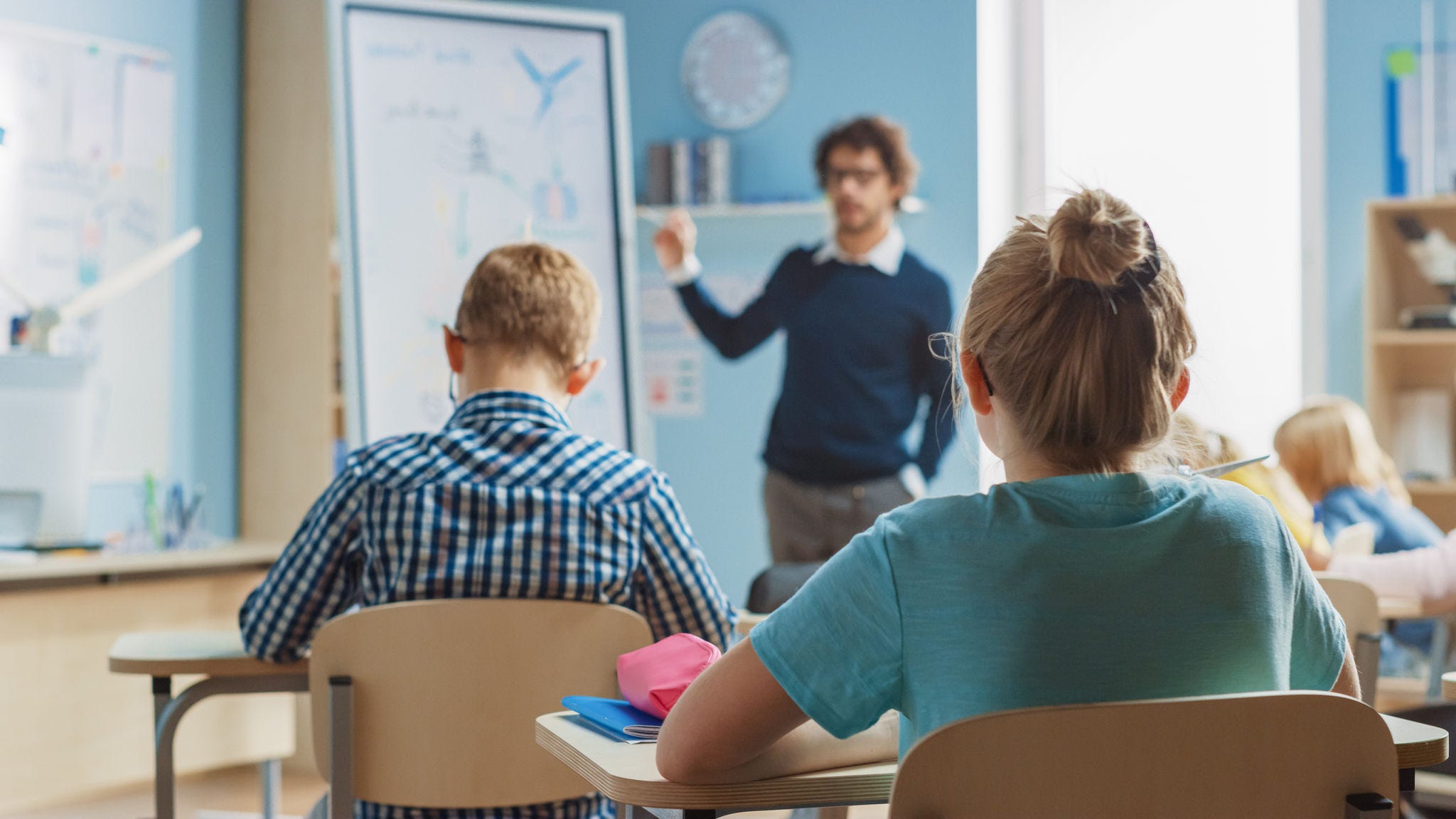
Key messages
The PISA 2006 results indicate that the average amount of time spent in regular school lessons, across countries, is positively related with overall country performance, albeit weakly. Conversely, time allocated to out-of-school-time lessons and individual study is negatively related to performance. This suggests that the quantity and the quality of learning time matters. Quality learning time relies on various elements such as quality of teaching, the availability of resources such as textbooks and school materials, student motivation and a supportive learning environment.
PISA 2022 data show that many students study mathematics in a disciplinary climate that is not favourable to learning even though, on average across OECD countries and in around a third of all education systems, the disciplinary climate improved between 2012 and 2022. For example, 20% of students across OECD countries reported that they cannot work well in most or all lessons. Apart from “traditional” disciplinary problems, such as students not listening to what the teacher says, or trying to learn in a noisy and disorderly classroom, one in three students, on average across OECD countries, also reported that, in most or every mathematics lesson, they get distracted using digital devices.
Context
Distraction from digital devices in mathematics lessons
On average across OECD countries, one in three students reported that they get distracted using digital devices and around one of four students indicated that they get distracted by other students who are using digital devices. The frequency with which students become distracted by other students who are using digital devices in class is among the disciplinary aspects that shows the strongest association with mathematics performance.
Distraction from digital devices in mathematics lessons (2022)
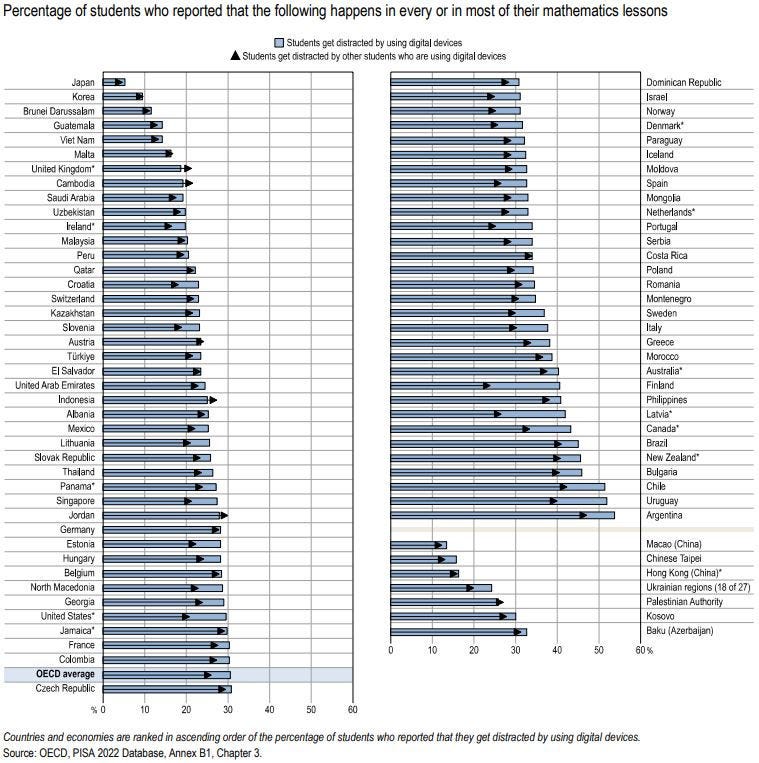
Time spent on digital devices at school and mathematics performance
On average across OECD countries, students who spent up to five hours per day on digital devices for learning activities in school scored higher in mathematics than students who spent no time. When it comes to the use of digital devices for leisure activities, students who spent up to one hour per day scored highest and the scores were lower as students spent more time.
Time spent on digital devices at school and mathematics performance (2022)
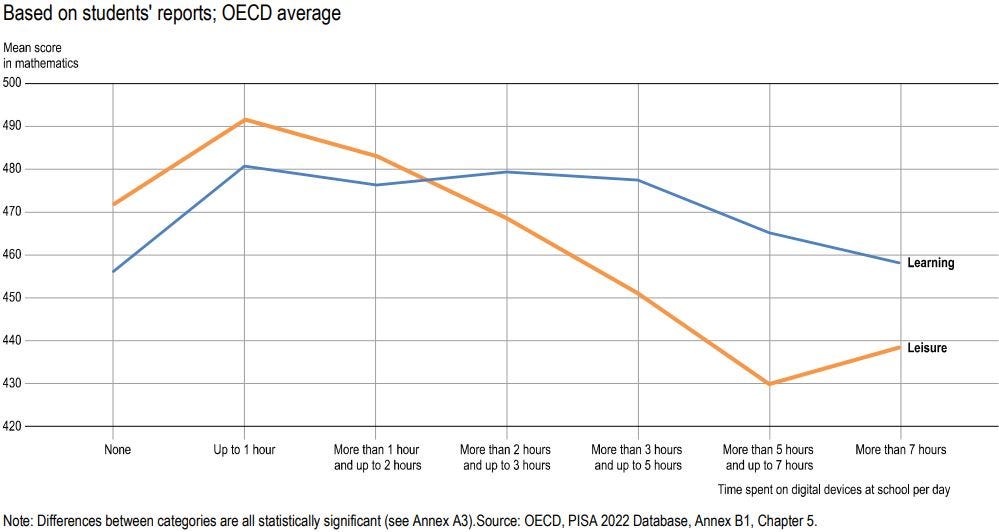
Related publications
Programmes and projects
-
PISA is the OECD's Programme for International Student Assessment. PISA measures 15-year-olds’ ability to use their reading, mathematics and science knowledge and skills to meet real-life challenges.Learn more
-
The Education Policy Outlook is an analytical observatory that monitors the evolution of policy priorities and policy developments from early childhood education to adult education, mainly among OECD education systems, to provide a comparative understanding of how policies are evolving, and how they can be best implemented or improved over time.Learn more
-
The OECD’s programme on education and skills policy support policymakers in their efforts to achieve high-quality lifelong learning, which in turn contributes to personal development, sustainable economic growth, and social cohesion.Learn more
-
OECD Future of Education and Skills 2030 aims to build a common understanding of the knowledge, skills, attitudes and values students need in the 21st century.Learn more
-
Add a short description – maximum 200 characters (4 lines). This should outline the OECD’s mandate and the main issues/challenges with respect to the project. Writing style and tone should be clear, to the point, and jargon-free.Learn more
-
The OECD Indicators of Education Systems (INES) programme seeks to gauge the performance of national education systems through internationally comparable data.Learn more
-
The PISA-based Test for Schools provides school-level estimates of performance and information about the learning environment and students’ attitudes gathered from student questionnaires. Find out more and how schools and their networks can take part.Learn more
-
Since 2013, the OECD has gathered evidence on how school resource policies work in different contexts. The focus is now on digital resources to enable countries to learn from each other in the digital transformation of their education.Learn more
-
Meeting the challenges of the 21st Century means that schools must be empowered to play a more central and active role in leading improvements in education. To support this, Schools+ will bring together major education networks to put schools at the centre of education design.Learn more
-
The OECD Survey on Social and Emotional Skills is an international survey that identifies and assesses the conditions and practices that foster or hinder the development of social and emotional skills for 10- and 15-year-old students.Learn more
-
TALIS - the Teaching and Learning International Survey - is the world's largest international survey about teachers and school leaders.Learn more
-
The Teacher Knowledge Survey (TKS) examines what teachers know about teaching and learning, and how their specialised knowledge of pedagogy relates to their work and training.Learn more
-
Preparing for the future means taking a careful look at how the world is changing. Reflecting on alternative futures helps anticipate and strategically plan for potential shocks and surprises.Learn more

